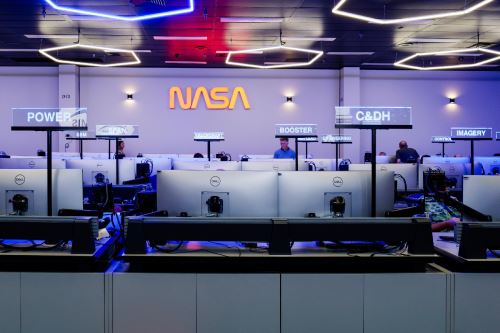The fourth edition of the
Artemis Accords Workshop will be held in Peru in 2026 . Learn why it is significant that our country has been chosen as the host where 56 signatory nations will gather, for the first time in Latin America, to discuss lunar exploration.
At the end of May, the third international Artemis Accords Workshop took place in the United Arab Emirates, where it was decided that Peru will host the 2026 meeting.
The
Artemis Accords Workshop 2026 is a high-level technical event that will bring together representatives from space agencies worldwide to discuss lunar exploration under the framework of the Artemis Accords, which have so far been signed by 56 countries.
The Artemis Accords are a set of non-binding principles signed by nations to promote a peaceful and prosperous future in space for the benefit of all humanity.
It should be recalled that Peru signed the Artemis Accords in May 2024, becoming the 41st signatory country, demonstrating its support for peaceful and collaborative space exploration.
"These workshops are held annually in different countries, and their purpose is to delve into the legal principles that govern space exploration," the official explained.
International cooperation and regional leadership

This event will bring together representatives from NASA and other space agencies around the world.
The aim of the workshop is to reinforce commitments and align legal criteria on lunar exploration under the framework of the Artemis Accords.
In addition to its role as host, Peru will co-organize the event, which entails logistical and thematic responsibilities for the workshop.
"It is a great opportunity to show the world that Peru has a growing international presence in the space field, especially in legal matters," Henriquez added.
It is not ruled out that the event may be held outside Lima.
Peru on the international space stage
Additionally, the Artemis Accords signatories will meet in person to discuss in parallel to the International Astronautical Congress (IAC) 2025.
The recommendations and results of the workshop will be presented at the IAC meetings.
In 2024, NASA and Conida laid the groundwork for a potential multi-year campaign to launch small scientific rockets from Peru, jointly with the United States.
NASA uses sounding rockets to carry scientific instruments into space on suborbital flights to collect essential scientific data and test instrument prototypes.
They provide invaluable data that improve our understanding of Earth's atmosphere and climate, our solar system, and the universe, while also testing equipment for deeper space missions.
(END) SPV/JMP/MVB
Publicado: 3/9/2025